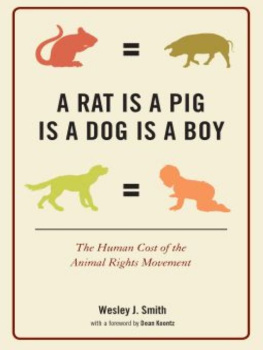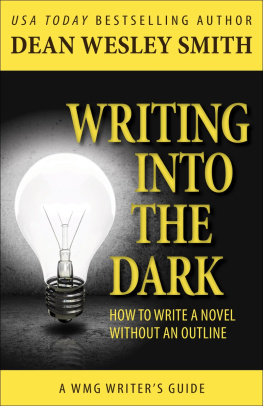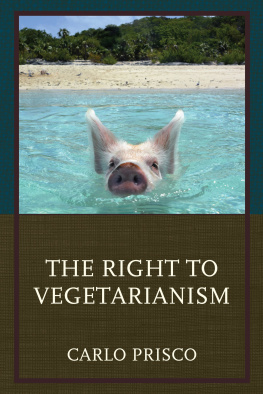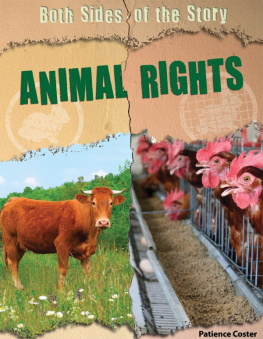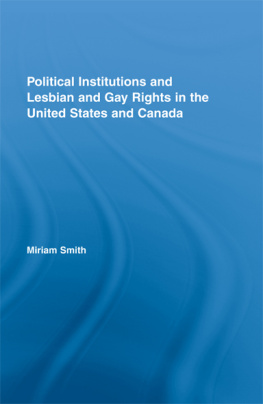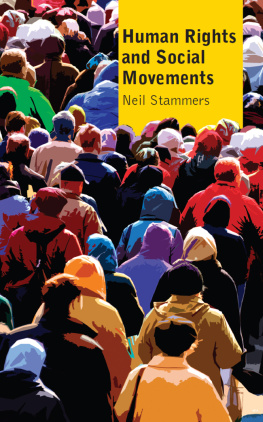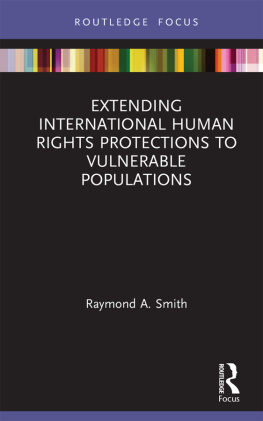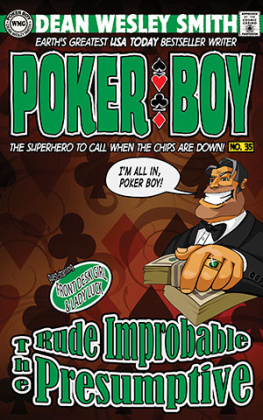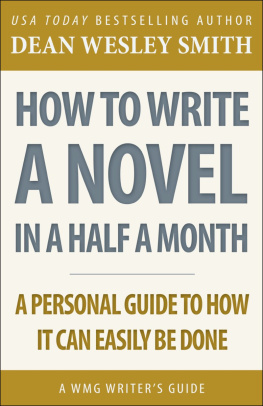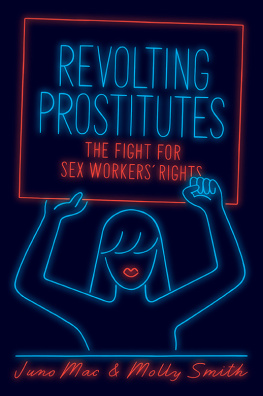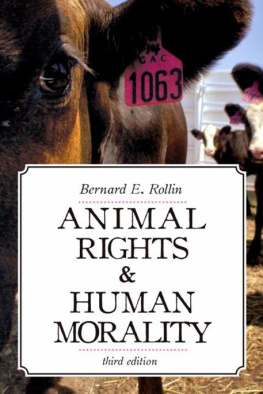Other Books by Wesley J. Smith
The Lawyer Book: A Nuts and Bolts Guide to Client Survival
The Doctor Book: A Nuts and Bolts Guide to Patient Power
The Senior Citizens Handbook: A Nuts and Bolts Guide to More Comfortable Living
Winning the Insurance Game (co-authored with Ralph Nader)
The Frugal Shopper (co-authored with Ralph Nader)
Collision Course: The Truth about Airline Safety (co-authored with Ralph Nader)
No Contest: Corporate Lawyers and the Perversion of Justice in America (co-authored with Ralph Nader)
Forced Exit: Euthanasia, Assisted Suicide, and the New Duty to Die
Culture of Death: The Assault on Medical Ethics in America
Power over Pain: How to Get the Pain Control You Need (co-authored with Eric Chevlen, MD)
Consumers Guide to a Brave New World
Foreword
This is a world of infinite layers and of insoluble enigmas. Our five senses bring us considerably more information than we are able to comprehend. Because we human beings often pride ourselves on the certainty of our knowledge and our opinions, a failure to comprehend disquiets us. Consequently, we lie to ourselves about the nature of the world. We resist inferring the Truth that is implicit in every moment of every day. We want a simple world, but it is instead thrillingly complex. Complexity disquiets us because it implies meaning, and we are afraid of meaning except as we craft it to suit ourselves.
Truth is what it is. The small truth of any mundane event and the ultimate Truth, which is the meaning and the way of the world, cannot be crafted. Intuition is our truthfinder. All profound truths are intuitive, neither derived from experience nor limited by it, but they are also fortified by reasoned observation: our born understanding of space and time, our born awareness that the whole is greater than any of its parts and that two things which are equal to a third are also equal to each other, our recognition of design in nature, our sense that dimensions exist beyond the material.
We can be educatedor arguedout of our intuitive knowledge, but then we become irrational and are unaware of our irrationality. We thereafter comprehend the world through a narrow theory or ideology that reduces complexity to simplicity. We are comforted by this crafted simplicity, this fiction, and we call it Truth, at which point we cross a line into a functional madness. By embracing fiction as truth, we surrender our connection with the transcendental and therefore with nature in all its layered mystery.
Truth is always stranger than fiction because we craft fiction to fit our preferences, but we have no control of the truth. The universe does not exist to fulfill our cherished expectations, and therefore truth frequently surprises us, bursting into our lives from the least expected source. Such as from a dog.
A golden retriever changed my heart, my life, and my writing. Her name was Trixie, and I sometimes say that I learned more from her than from all my years in school. That is not a cute quip but the truth. She encouraged in me a tenderness that I didnt know I possessed, restored my sense of wonder to the brightness it had in my youth, and renewed my awareness of the mystical nature of life. She gave and received love in abundance, was innocent and directand yet mysterious. Losing her was the hardest loss of my life, and the intensity of my grief did not begin to diminish for weeks.
Because of my experiences with Trixie, I believe that, like us, a few species among the higher animals must have souls, although of a different kind from ours. This simple soul is an aspect of their being that provides them an awareness of death and of an unseen dimension of existence, the preternatural. My dog seemed to have not only instinct but also that more exalted form of knowledge called intuition.
Having for years been involved with assistance-dog organizations, I know scores of people who work daily with dogs, and most will say not only that these animals have intuitionin addition to base instinctbut also that just as human beings are born with a Tao, a sense of right and wrong, so are dogs. The canine Tao is akin tobut simpler thanthe human Tao; and more important, dogs largely live according to it, perhaps because they lack the free will that gives human beings the capacity to rebel against natural law.
Some denominations of Judaism believe that an animal spirit, something like our soul, may survive death if the animal, by the comfort and affection it gives to its human companion, inspires that companion to perform a great many mitzvahsgood and praiseworthy deedsduring his life. My intuition tells me this must be true: as faith and charity are the pillars of the bridge that allows a good person to cross the void between this world and eternity, so each of us is the bridge by which a beloved dog may follow us.
The committed animal rights activist must deny the existence of any kind of animal soul, for to acknowledge it would be to admit the existence of a human soul. And the game here is less about protecting animals than about denying the existence of the sacred.
I, on the other hand, recognizing the sacredness of all creation, must believe ardently in animal welfare. Every creature is the work of my own Creator, and therefore worthy of respect and mercy.
But recognizing a vertical of sacred order, I must also believe that rights do not come from men or courts, or from governments, but only from God. Rights granted by men, courts, and governments are not rights but merely privileges that can be modified or denied according to the whims of those in power. This is why the founders of our country specified that life, liberty, and the pursuit of happiness were rights of divine origin, beyond the power of moral leaders to limit unreasonably or to abrogate.
Therefore, not being God, we cannot grant rights to animals any more than we can grant ourselves the right to take our neighbors property or their lives. Under a corrupt political regime, much property and many lives might be taken from one group for the benefit and the satisfaction of others, but this can never be a right of the takers; it is merely their exercise of raw power in the service of their avarice and hatred. A society might legalize slavery, which makes some men the property of others, but the power to own slaves is not the same as the right to own them.
For thousands of years, the intuition of countless generations in many cultures has been that humankind is exceptional among all the species of this world. This born knowledge is fortifiedand one might argue is confirmedby reasoned observation. Recognition and acceptance of human exceptionalism gives rise to a sense of duty and a moral obligation to a higher power that, when fulfilled, leads to a better world for everyone. History shows that slavery is eliminated, the number of the impoverished is reduced, pollution is curbed, and all the other ills of humankind are best addressed by people with a sense of a merciful divine imperative, not by those whose motivation is a concept as imprecise as justice. God means one thing supreme; but justice has infinite definitions, as when Hitler dealt justice to the Jews, and Stalin to anyone who did not submit to his boot.
Ironically, the movement to deny human exceptionalism has arisen primarily if not exclusively in the Christian West. Its roots are in the desire to deny the roundness of creation and to force upon society a simple and intellectually hollow materialism that reduces nature to a machine lacking in mystery and reduces all the splendid, diverse creatures on the earth to one and the same thing: meat. It is a denial of the worlds profound depth, of meaning and sacred order.


